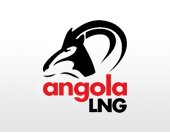Angola LNG Resumes Exports

Angola LNG confirmed June 6 that, following the recent plant shutdown, production has resumed at its liquefaction plant at Soyo, northern Angola. It added that the first LNG cargo following the two-year shutdown "has now been loaded at Soyo; it is being sold by an international tender."
Angola LNG later told Natural Gas Africa that the cargo had been loaded onto the tanker Sonangol Sambizanga. The vessel was in Soyo harbour in northwest Angola for much of May. However in the afternoon of June 6, ship tracking services showed it roughly 150 km due west of Soyo, heading west – with an indicative arrival date of June 17 but no stated destination. Its course though suggests that the ship – and the first Angolan LNG cargo in over two years – may be headed for Argentina or Brazil. The venture itself declined to identify the importer.
"Production is continuing and Angola LNG expects to load further LNG and LPG cargoes as part of the plant commissioning and testing process. Full handover and commercial operation of the plant from contractor Bechtel will take place in due course after a planned shutdown," the venture said.
Traders had expected the plant to go into a further shutdown, after this new cargo and possibly a few others were shipped. The plant had shut down production until two weeks ago, following an incident in April 2014 since when repairs and design modification were since made by Bechtel.
Angola LNG's shareholders are state Sonangol with 22.8% and Chevron 36.4%, while BP, Eni and Total each have 13.6%. The plant has been shut since an incident in April 2014 while repairs and design modifications have been made by Angola LNG’s contractor, Bechtel.
The CEO of Angola LNG Marketing – a venture 50%-owned by Sonangol – Artur Pereira, said: “Angola LNG is pleased to be back in production. The market has changed a lot while our plant has been shut down, but we are pleased to be able to deliver Angola LNG to the world and to take our place as a reliable and safe supplier in global LNG markets”. Future LNG cargoes will be sold globally in a variety of ways, including international sales tenders.
Mark Smedley


